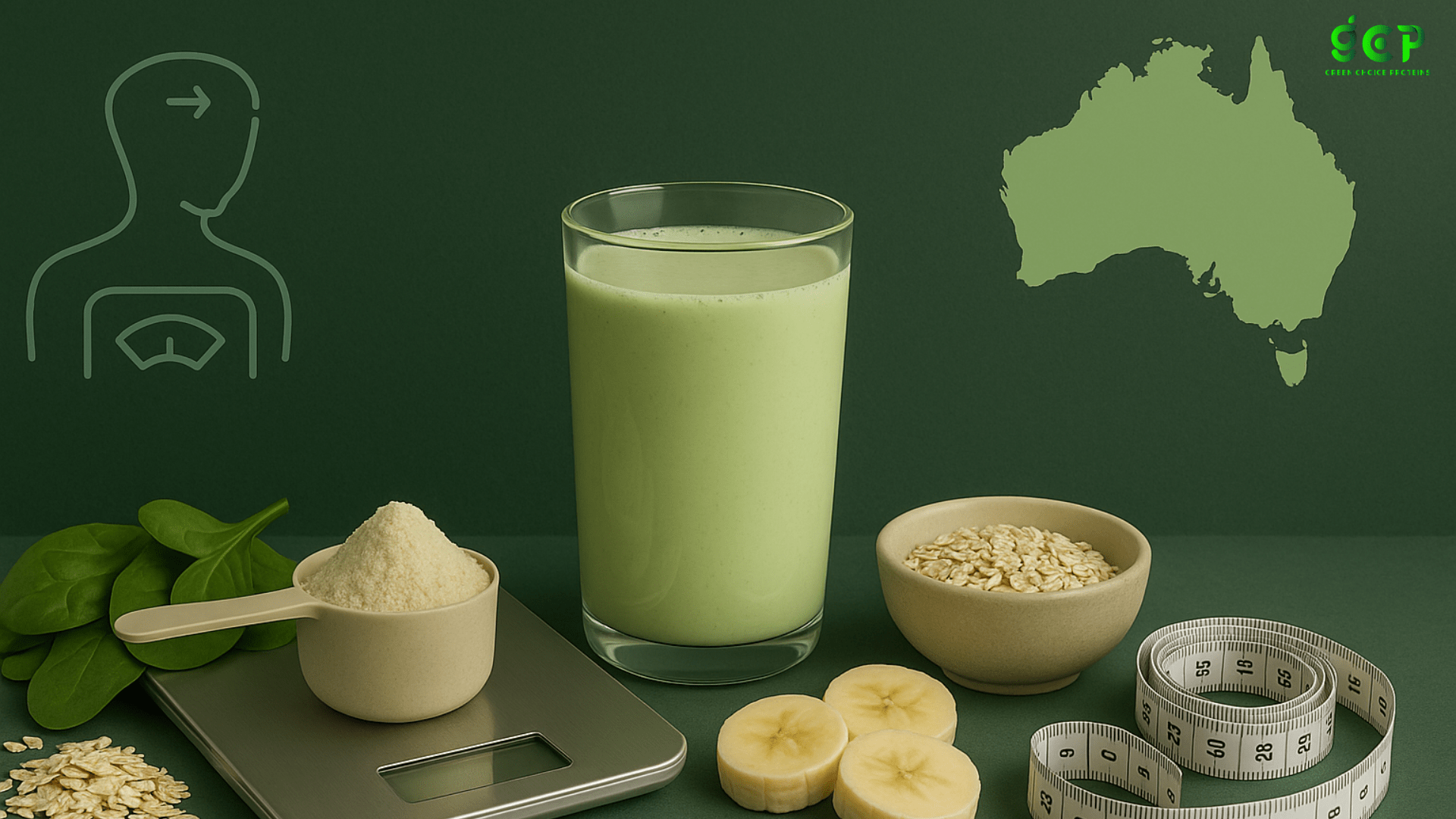
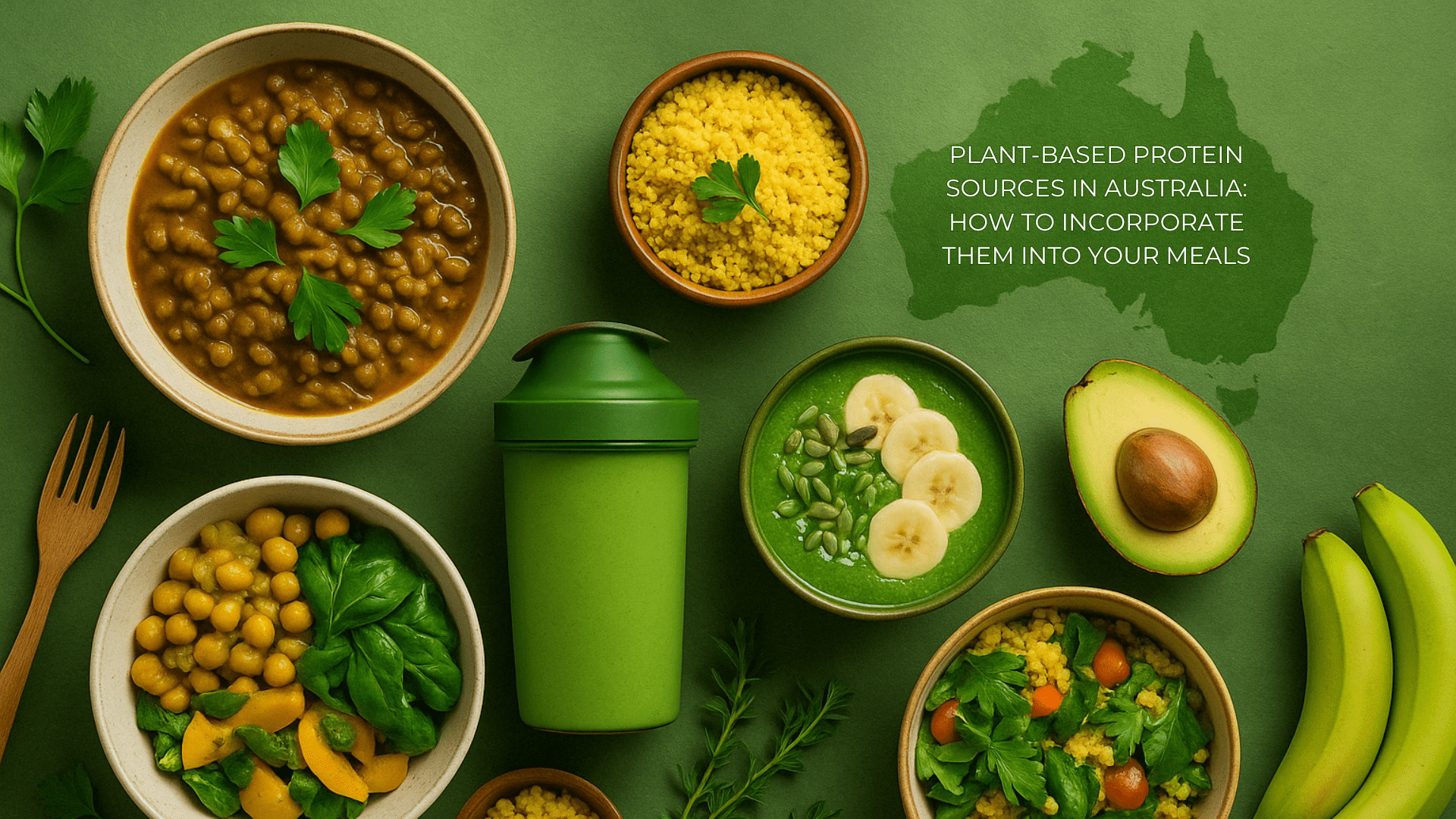
With more Australians embracing clean, sustainable eating, the spotlight has turned to Plant-Based Protein Sources in Australia. From fitness-focused individuals to health-conscious families, there’s growing awareness that plant proteins can offer all the essential nutrients needed for energy, muscle maintenance, and long-term wellbeing—without relying on animal products.
Plant-based proteins are nutrient-rich, versatile, and naturally high in fiber, vitamins, and minerals. From local legumes to grains, seeds, soy, and premium plant-based protein powders like those from Green Choice Proteins (GCP), Australians now have access to a broad spectrum of protein options that are good for both body and planet.
In this guide, we explore the best sources of plant-based protein in Australia and share creative ways to incorporate them into everyday meals—whether you’re planning breakfast, lunch, dinner, or snacks.
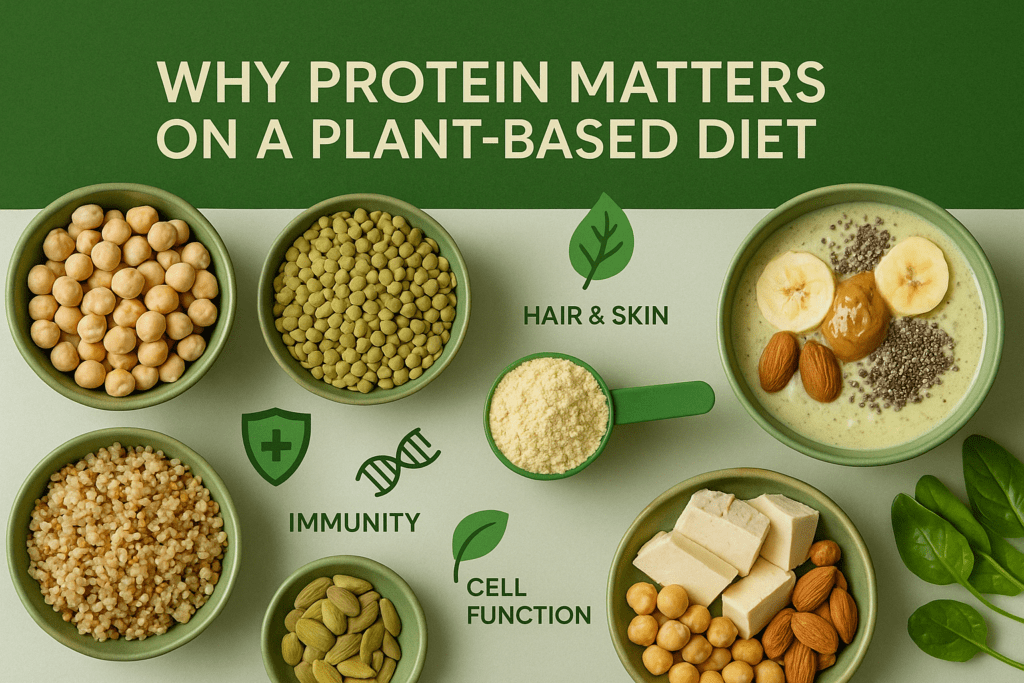
Protein is essential for more than just muscle building—it plays a critical role in nearly every biological function. Your body uses protein to:
Getting enough protein is especially important for vegans, vegetarians, and athletes, which is why choosing a variety of plant-based protein sources is key to ensuring complete nutrition.
Animal proteins are considered “complete” by default, as they contain all nine essential amino acids. Some plant proteins may be “incomplete” on their own, but when you consume a diverse range of plant-based foods, or opt for blended protein sources like GCP’s pea and chickpea formula, you can easily meet your full amino acid needs.
The additional benefits? Plant-based proteins are naturally cholesterol-free, lower in saturated fat, and packed with fiber and antioxidants, making them ideal for a heart-healthy, digestion-friendly lifestyle.
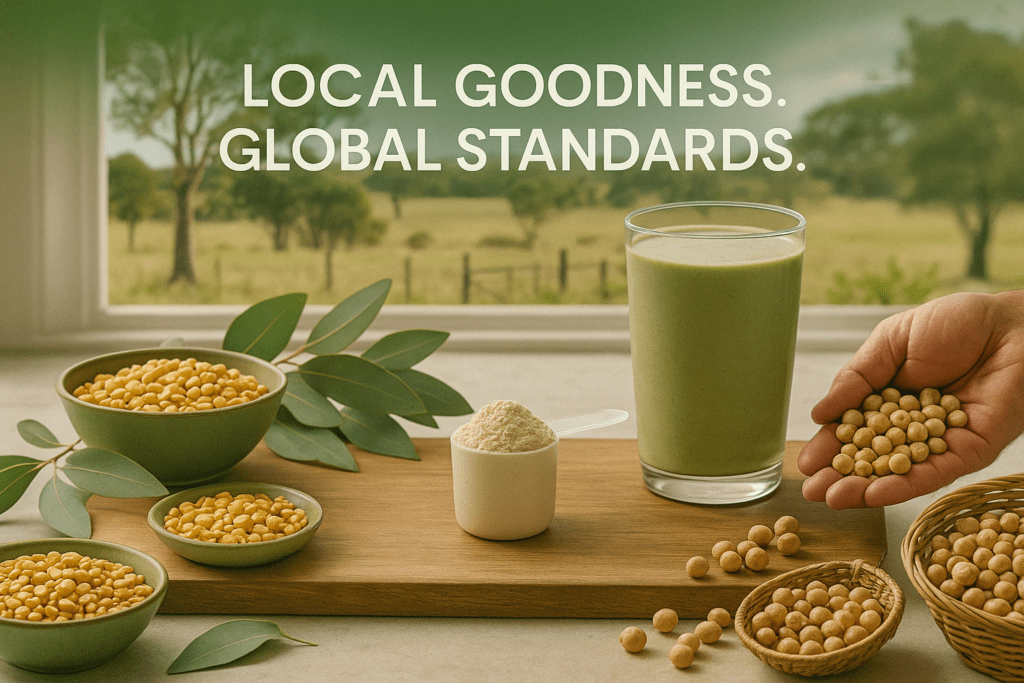
Green Choice Proteins (GCP) sets a new benchmark for plant-based supplementation in Australia by offering a clean-label, complete protein powder made from 100% Australian-grown yellow peas and chickpeas. Unlike many other brands that rely on imported ingredients or synthetic additives, GCP is proud to work closely with Australian farmers, ensuring freshness, traceability, and support for the local agricultural economy.
This locally sourced approach reduces environmental impact and ensures the nutritional integrity of every batch, making GCP not only a healthy option—but an ethical one, too.
One of the most common concerns about plant-based protein is that it’s often incomplete—meaning it lacks one or more of the nine essential amino acids your body needs for muscle recovery, growth, and maintenance. GCP solves this by combining pea protein (high in lysine and BCAAs) with chickpea protein (rich in methionine and iron), resulting in a well-rounded amino acid profile comparable to that of whey.
Whether you’re an athlete, gym-goer, or someone simply looking to meet your daily protein requirements, GCP offers the same performance and recovery benefits as traditional proteins—without dairy, gluten, or soy.
Each scoop of GCP delivers an impressive 20–25 grams of high-quality plant protein, which is ideal for:
This makes GCP one of the most protein-dense, plant-based powders available in the Australian market—without added sugars, fillers, or artificial sweeteners.
Many plant-based and whey proteins cause digestive discomfort due to added gums, emulsifiers, artificial sweeteners, or allergens like soy and gluten. GCP is formulated to be:
It’s one of the few gut-friendly protein powders that’s safe for daily use, even for people with food sensitivities or digestive challenges.
Texture and taste are dealbreakers for many when it comes to protein powders. GCP has mastered a smooth, non-gritty texture that blends beautifully into smoothies, plant milks, oats, baked goods, and more. With naturally flavoured Vanilla and Chocolate options, GCP delivers a clean, enjoyable flavour without relying on stevia, sucralose, or synthetic additives.
How to Use GCP Protein Powder:
By choosing GCP, you’re not only fuelling your body with high-quality nutrition—you’re also supporting local agriculture, reducing your environmental footprint, and investing in a cleaner, smarter approach to plant-based health.
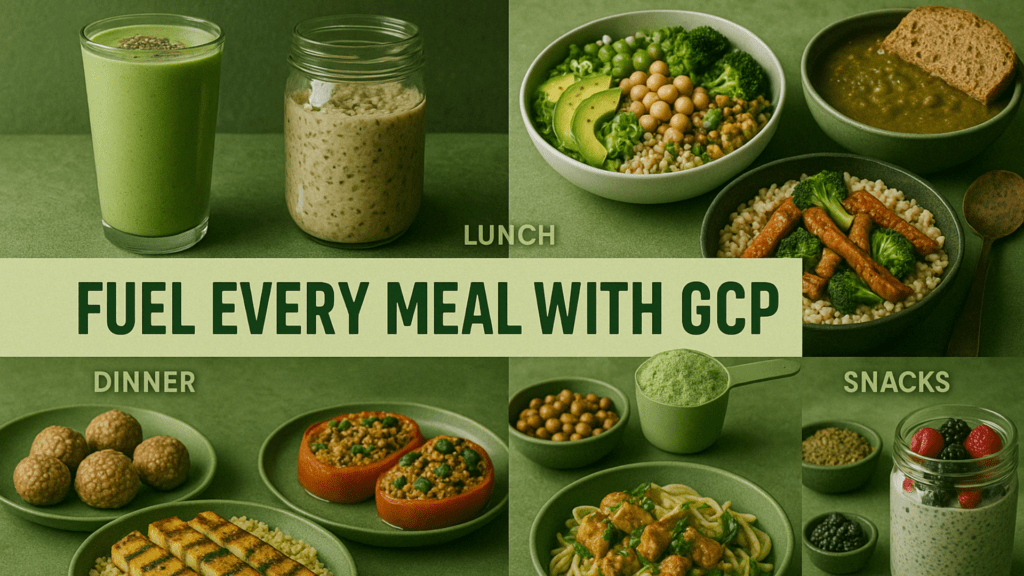
Start your day with a high-protein breakfast to fuel energy and prevent mid-morning cravings.
Ideas:
A balanced plant-based lunch includes protein, fiber, and complex carbs.
Ideas:
Dinner should be filling, nourishing, and rich in muscle-repairing protein.
Ideas:
Protein-rich snacks support metabolism and muscle maintenance between meals.
Ideas:
Top choices include lentils, chickpeas, tofu, tempeh, quinoa, edamame, hemp seeds, and GCP plant-based protein powder, which is locally made and complete.
Yes. While some plant proteins are incomplete individually, combining sources (e.g., legumes + grains) or using blended proteins like GCP gives you all essential amino acids.
Incorporate legumes, whole grains, nuts, seeds, soy products, and supplement with a clean protein powder like GCP for convenience and consistency.
Yes. GCP’s powder is low-FODMAP, allergen-free, and free from artificial ingredients, making it ideal for daily use in meals, snacks, or workouts.
Shop directly from their official store here: gcproteins.com.au/shop
With a wide variety of options—from whole legumes and grains to premium protein supplements—getting enough plant-based protein is both achievable and enjoyable. Whether you’re new to plant-based eating or simply looking to optimise your meals, incorporating diverse plant-based protein sources in Australia ensures balanced nutrition, sustainable living, and delicious possibilities.
Thanks to innovative brands like Green Choice Proteins, Australians can now access locally made, clean-label protein blends that support muscle health, energy levels, and digestive wellness—naturally and ethically.
Join our mailing list and be the first to know about exclusive offers, new product launches, nutrition tips, and more! Elevate your plant-based journey with expert insights and special deals straight to your inbox.
Sign up today and fuel your health the Green Choice way! 💚
